
Mary Isobel Catherine Bernadette O'Brien, better known by her stage name Dusty Springfield, was an English singer. With her distinctive mezzo-soprano voice, she was a popular singer of blue-eyed soul, pop and dramatic ballads, with French chanson, country, and jazz also in her repertoire. During her 1960s peak, she ranked among the most successful British female performers on both sides of the Atlantic. Her image–marked by a peroxide blonde bouffant/beehive hairstyle, heavy makeup and evening gowns, as well as stylised, gestural performances–made her an icon of the Swinging Sixties.

"I'm Gonna Make You Love Me" is a soul song most popularly released as a joint single performed by Diana Ross & the Supremes and the Temptations for the Motown label. This version peaked for two weeks at No. 2 on the Hot 100 in the United States, selling 900,000 copies in its first two weeks, and at No. 3 on the UK Singles Chart in January 1969.
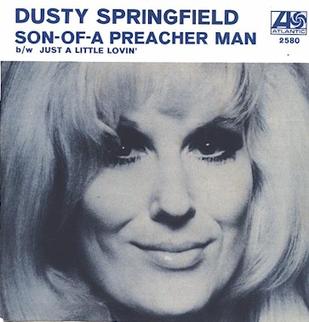
"Son of a Preacher Man" is a song written and composed by American songwriters John Hurley and Ronnie Wilkins and recorded by British singer Dusty Springfield in September 1968 for the album Dusty in Memphis.
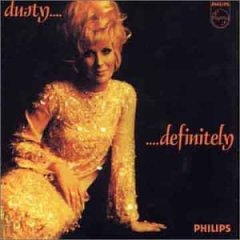
Dusty... Definitely is the fourth studio album by singer Dusty Springfield, recorded and released in the UK in 1968. Production credits go to both John Franz, and for the first time, Springfield herself. The songs on this album were chosen because Springfield "liked them", as stated in the liner notes. Like the vast majority of her LPs, the album shows a diverse range of styles ranging from soul, pop, folk to lounge.

"I Just Don't Know What to Do with Myself" is a song written by Burt Bacharach and lyricist Hal David. The song was recorded by Dusty Springfield and it reached No. 3 on the UK chart in 1964.

Tom Springfield was an English musician, songwriter, and record producer who was prominent in the 1960s folk and pop music scene. He was the older brother of singer Dusty Springfield, with whom he performed in the Springfields. He wrote several hit songs for the Springfields and later for the Seekers, whose records he also produced.

The discography of English pop singer Dusty Springfield includes 21 studio albums, one live album, 30 compilations, four extended plays, and 69 singles. Some of her albums and singles were unreleased, most notably 1974's Longing. Additionally, many of her early US album releases were released by the US arm of Philips Records, using material recorded in England and America with US and UK single releases included and re-ordered. Thus, these album releases were often collections of her recordings that were not intended by Springfield to have been released as proper albums at all. From 1969-2015, her albums were released simultaneously in the US and the UK, though occasionally with different names and artwork, but the same track listings. Only 1968's Dusty... Definitely and 1972's See All Her Faces and 1982's White Heat deviated from that format.
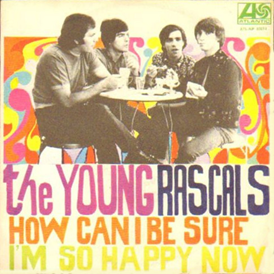
"How Can I Be Sure" is a popular song written by Felix Cavaliere and Eddie Brigati, and originally recorded by the Young Rascals for their 1967 album Groovin' with a single release in August 1967 affording the group their fourth Top 10 hit.
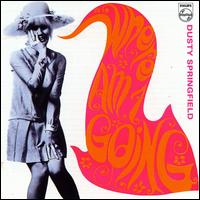
Where Am I Going? is the third studio album by singer Dusty Springfield, released on Philips Records in the UK in 1967. By now, firmly established as one of the most popular singers in Britain, with several hits in America as well, Springfield ventured into more varying styles than before and recorded a wide variety of material for this album. Rather than the straightforward pop of A Girl Called Dusty or the mix of pop and soul of Ev'rything's Coming Up Dusty, Springfield recorded a variety of styles from jazz to soul, to pop and even show tunes. While not the success that her previous two albums were, Where Am I Going? was praised by fans and critics alike for showing a mature and sophisticated sensibility, despite the many different styles of music.
"You Don't Have to Say You Love Me" is the English-language version of the 1965 Italian song ”Io che non vivo," written by Pino Donaggio and Vito Pallavicini. The English lyrics were written for Dusty Springfield by Vicki Wickham and Simon Napier-Bell.
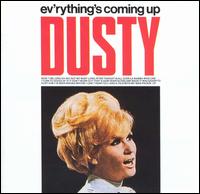
Ev'rything's Coming Up Dusty is the second studio album by singer Dusty Springfield, released on Philips Records in the UK in 1965. Springfield's 1964 debut album, A Girl Called Dusty, sold well enough to make her Philips Records' top-selling female artist. For this, her second album, Philips presented it in a gatefold sleeve and included extensive liner notes. While including a number of fairly standard "pop" songs, Ev'rything's Coming Up Dusty also saw Springfield venturing more into show tunes like "Who Can I Turn To ?" as well as the soul music for which Springfield became so well known for singing. "Doodlin'" and "That's How Heartaches Are Made" were minor hits for Baby Washington, one of Springfield's personal favourite singers. Springfield also included the song "La Bamba", which was a popular concert number for her, though not in step with the general style of the album. The album gave Dusty another chart success peaking at No.6 on the UK Charts and No.4 on the NME charts that following month.

Dusty is the second album of singer Dusty Springfield to be released in the USA. It was issued on the Philips Records label in 1964 and includes Springfield's hit singles "All Cried Out", "I Just Don't Know What To Do With Myself" and the double A-side "Guess Who?"/"Live It Up".
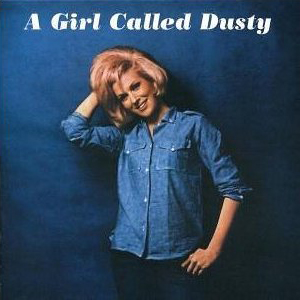
A Girl Called Dusty is the debut studio album by English singer Dusty Springfield. It was released on 17 April 1964 in the United Kingdom by Philips Records. The album peaked at No. 6 on the UK Album Charts and No.5 on NME charts in May 1964.

Stay Awhile/I Only Want to Be with You is the first album of the singer Dusty Springfield to be released in the USA. It was issued on the Philips Records label in 1964 and includes Springfield's hit singles "I Only Want To Be With You", "Stay Awhile" and "Wishin' and Hopin'".

Ooooooweeee!!! was the third album by the singer Dusty Springfield to be released in the US, issued on the Philips Records label in 1965 and including the hit single "Losing You". Even more than Springfield's first two US albums, Ooooooweeee!!! can be considered as a compilation since it contains tracks both from her first British album, A Girl Called Dusty, and recordings originally issued on various A- and B-side singles and EPs – recorded and released in the UK over a period of some eighteen months. Ooooooweeee!!! also has tracks from Springfield's September 1964 sessions in New York, produced by Shelby Singleton Jr, some of which remain unreleased in Britain until 1998 and the CD re-issue of the 1965 album, Ev'rything's Coming Up Dusty.

"I Only Want to Be with You" is a song written by Mike Hawker and Ivor Raymonde. Released as a debut solo single by British singer Dusty Springfield under her long-time producer Johnny Franz, "I Only Want to Be with You" peaked at number 4 on the UK Singles chart in January 1964.

"The Windmills of Your Mind" is a song with music by French composer Michel Legrand and English lyrics written by American lyricists Alan and Marilyn Bergman. French lyrics, under the title "Les Moulins de mon cœur", were written by Eddy Marnay. It was originally recorded by the English actor Noel Harrison in 1968.

"This Guy's in Love with You" is a hit song written by Burt Bacharach and Hal David and released by Herb Alpert in May, 1968. Although known primarily for his trumpet playing as the leader of the Tijuana Brass, Alpert sang lead vocals on this solo recording, which was arranged by Bacharach. An earlier recording of the song by British singer Danny Williams with different lyrics titled "That Guy's in Love" appeared on Williams' 1968 self-titled album.
"Wishin' and Hopin'" is a song, written by Hal David and Burt Bacharach, which was a US Top 10 hit for Dusty Springfield in 1964.

The singles discography of Elvis Presley began in 1954 with the release of his first commercial single, "That's All Right". Following his regional success with Sun Records, Presley was signed to RCA Victor on November 20, 1955. Presley's first single with RCA, "Heartbreak Hotel", was a worldwide hit, reaching the No. 1 position in four countries and the top 10 in many other countries. Other hit singles from the 1950s include "I Want You, I Need You, I Love You", "Don't Be Cruel", "Hound Dog", "Love Me Tender", "Too Much", "All Shook Up", "(Let Me Be Your) Teddy Bear", "Jailhouse Rock", "Don't", "Wear My Ring Around Your Neck", "Hard Headed Woman", "One Night", "(Now & Then There's) A Fool Such as I", and "A Big Hunk o' Love". On March 24, 1958, Presley entered the United States Army at Memphis, Tennessee, and was stationed in Germany. He left active duty on March 5, 1960.

















